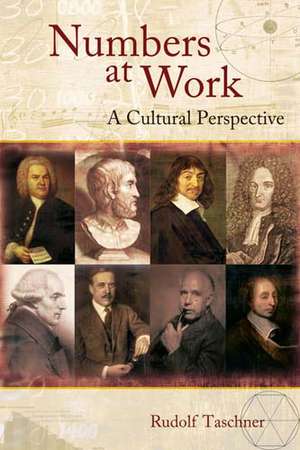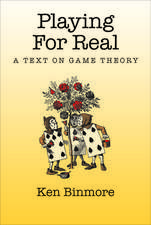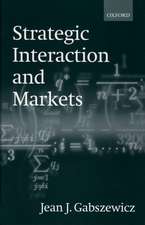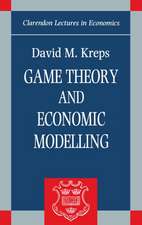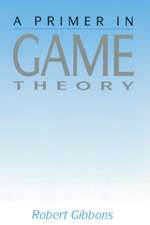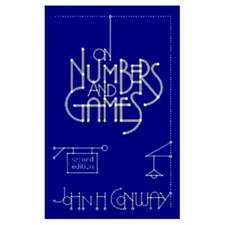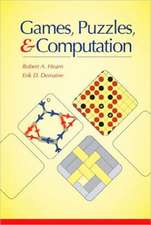Numbers at Work: A Cultural Perspective
Autor Rudolf Taschneren Limba Engleză Hardback – 31 mai 2007
Preț: 599.31 lei
Preț vechi: 840.25 lei
-29% Nou
Puncte Express: 899
Preț estimativ în valută:
114.69€ • 124.54$ • 96.34£
114.69€ • 124.54$ • 96.34£
Carte tipărită la comandă
Livrare economică 22 aprilie-06 mai
Preluare comenzi: 021 569.72.76
Specificații
ISBN-13: 9781568812908
ISBN-10: 1568812906
Pagini: 222
Dimensiuni: 152 x 229 x 15 mm
Greutate: 0.57 kg
Ediția:New.
Editura: CRC Press
Colecția A K Peters/CRC Press
Locul publicării:United States
ISBN-10: 1568812906
Pagini: 222
Dimensiuni: 152 x 229 x 15 mm
Greutate: 0.57 kg
Ediția:New.
Editura: CRC Press
Colecția A K Peters/CRC Press
Locul publicării:United States
Recenzii
" ""[with] facile knowledge and sprightly delivery ... [Taschner] creates a flow that embraces various aspects of reality. Readers of this book will take away the understanding that mathematics is an integral part of nearly everything they do."" -—Philip J. Davis,, Bridges, April 2007
are everywhere, in mathematics, logic and computers, in physics and astronomy, in music and art, for the passing of time and the calender, and in politics... Rudolf Taschner's book shows us the mysteries of numbers as part of the cultural history of mankind. It is fascinating reading for an interested general public, including students and teachers (not only in mathematics), and for professional scientists.""-—Friedrich Hirzebruch,, Max-Planck-Institut für Mathematik, April 2007
with pride in mathematical illiteracy if not outright hostility towards the subject by many bright and well-educated people, we need books like Numbers at Work: A Cultural Perspective, written by a level-headed mathematician with a broad interest in the humanities, to guide us in our educational quest to bridge the 'Two Cultures' described by C. P. Snow."" -Alfred S. Posamentier, author of The Fabulous Fibonacci Numbers -Posamentier, June 2007
Numbers at Work is really a sort of modern cabinet of curiosities collected from the mathematical world... in the best sense: Taschner has created a collection of interesting and wonderful facts which illustrate how mathematics is involved in many areas of human endeavor. Reading such a book leaves one with two feelings: the world is full of marvels, and human intelligence is also a marvelous thing...the text is lively and easily comprehensible by non-specialits. -MAA, August 2007
A fascinating reading on the history and use of numbers. A deeper background in mathematics is not necessary in order to read, enjoy and learn from this book. Recommended to all readers interested in the world around us and wanting to understand the importance of numbers in our daily lives. -EMS, September 2007
As a mathematician with interests in history, I did not expect to learn a great deal from such a popularisation, but was pleasantly surprised to have my expectations dashed. There are many gems to be found in this book that I have not seen elsewhere, and we owe a great deal to the formidable erudition of Professor Taschner. -Phill Shultz, Gazette of the Australian Mathematical Society, November 2007
""Pythagoras, Bach, Hofmannsthal, Descartes, Leibniz, Laplace, Bohr, Pascal - ... a discursive journey along a thread of ideas crossing temporal and geographical boundaries and ranging over philosophy, art and science."" -Mathematiacl Reviews, January 2008
""All that is required is an interest in the world around us and a desire to understand the impact and influence that numbers have, both historically and in our daily lives."" -L'Enseignement Mathématique, July 2007
""Taschner is a gifted writer, and his book is accessible to a broad audience. ... I highly recommend this book as an interesting, comprehensive reference for students as well as preservice and in-service educators. The relevant applications of numbers discussed here can serve as a means of motivating even the most reluctant learner to study numbers."" -Cathleen M. Zucco-Teveloff, Mathematics Teacher, August 2008
""A superb text that appeals to a very wide audience, it illuminates the multifaceted nature of mathematics and emphasizes its deepest links with cultural, historical, spiritual, ideological, and scientific evolution of our society."" -Zentralblatt MATH, February 2009"
are everywhere, in mathematics, logic and computers, in physics and astronomy, in music and art, for the passing of time and the calender, and in politics... Rudolf Taschner's book shows us the mysteries of numbers as part of the cultural history of mankind. It is fascinating reading for an interested general public, including students and teachers (not only in mathematics), and for professional scientists.""-—Friedrich Hirzebruch,, Max-Planck-Institut für Mathematik, April 2007
with pride in mathematical illiteracy if not outright hostility towards the subject by many bright and well-educated people, we need books like Numbers at Work: A Cultural Perspective, written by a level-headed mathematician with a broad interest in the humanities, to guide us in our educational quest to bridge the 'Two Cultures' described by C. P. Snow."" -Alfred S. Posamentier, author of The Fabulous Fibonacci Numbers -Posamentier, June 2007
Numbers at Work is really a sort of modern cabinet of curiosities collected from the mathematical world... in the best sense: Taschner has created a collection of interesting and wonderful facts which illustrate how mathematics is involved in many areas of human endeavor. Reading such a book leaves one with two feelings: the world is full of marvels, and human intelligence is also a marvelous thing...the text is lively and easily comprehensible by non-specialits. -MAA, August 2007
A fascinating reading on the history and use of numbers. A deeper background in mathematics is not necessary in order to read, enjoy and learn from this book. Recommended to all readers interested in the world around us and wanting to understand the importance of numbers in our daily lives. -EMS, September 2007
As a mathematician with interests in history, I did not expect to learn a great deal from such a popularisation, but was pleasantly surprised to have my expectations dashed. There are many gems to be found in this book that I have not seen elsewhere, and we owe a great deal to the formidable erudition of Professor Taschner. -Phill Shultz, Gazette of the Australian Mathematical Society, November 2007
""Pythagoras, Bach, Hofmannsthal, Descartes, Leibniz, Laplace, Bohr, Pascal - ... a discursive journey along a thread of ideas crossing temporal and geographical boundaries and ranging over philosophy, art and science."" -Mathematiacl Reviews, January 2008
""All that is required is an interest in the world around us and a desire to understand the impact and influence that numbers have, both historically and in our daily lives."" -L'Enseignement Mathématique, July 2007
""Taschner is a gifted writer, and his book is accessible to a broad audience. ... I highly recommend this book as an interesting, comprehensive reference for students as well as preservice and in-service educators. The relevant applications of numbers discussed here can serve as a means of motivating even the most reluctant learner to study numbers."" -Cathleen M. Zucco-Teveloff, Mathematics Teacher, August 2008
""A superb text that appeals to a very wide audience, it illuminates the multifaceted nature of mathematics and emphasizes its deepest links with cultural, historical, spiritual, ideological, and scientific evolution of our society."" -Zentralblatt MATH, February 2009"
Cuprins
Preface, Pythagoras: Numbers and Symbol, Bach: Numbers and Music, Hofmannsthal: Numbers and Time, Descartes: Numbers and Space, Leibniz: Numbers and Logic, Laplace: Numbers and Politics, Bohr: Numbers and Matter, Pascal: Numbers and Spirit, Notes, Acknowledgments, Figure Credits, Bibliography
Descriere
Drawing primarily from historical examples, this book explains the tremendous role that numbers and, in particular, mathematics play in all aspects of our civilization and culture. The lively style and illustrative examples will engage the reader who wants to understand the many ways in which mathematics enables science, technology, art, music, politics, and rational foundations of human thought. Each chapter focuses on the influence of mathematics in a specific field and on a specific historical figure, such as "Pythagoras: Numbers and Symbol"; "Bach: Numbers and Music"; "Descartes: Numbers and Space."
